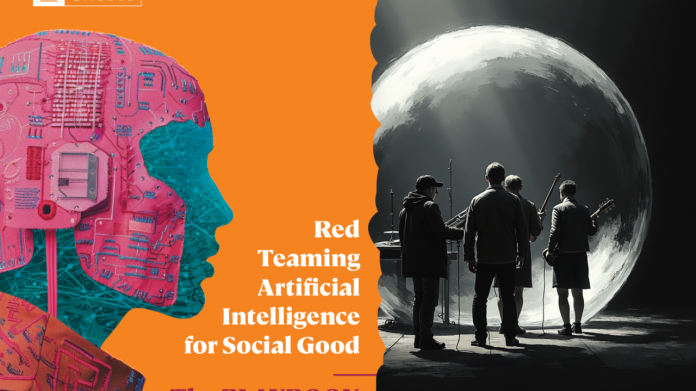Isn’t it great when silos finally burst — not into chaos, but into bridges?
As someone who’s spent a career navigating both the creative world and the emerging tech landscape, I’ve become a strong advocate for collaboration outside our comfort zones. Because as much as the problems may lie within your own bubble, the solutions rarely do.
That’s why I’m thrilled to see how the Fair Music Project, through the collaboration between the International Music Council (IMC) and New Internet Media (NIM) — supported by leading international music stakeholder organizations and Co-Funded by the Creative Europe Programme of the European Union — is helping burst those silos and build bridges across disciplines. It´s also exciting how closely the project aligns with UNESCO’s newly published Red Teaming Playbook, a forward-thinking framework for evaluating and improving AI systems for social good.
So where does FMP music streaming and fairness fit into this broad ethical landscape?
The Fair Music Project addresses core issues in digital music streaming — like opaque payment models, fake streams, and the marginalization of independent creators — by building user-centric, blockchain-enabled royalty systems. According to the evaluation, the project already aligns with 75% of UNESCO’s Red Teaming principles.
Where FMP excel:
- Transparency: Thanks to a blockchain-based infrastructure, every payment and attribution in the system is traceable. The tech creates an auditable trail that shows who got paid, why, and how — meeting UNESCO’s transparency criteria head-on.
- Stakeholder Engagement: The project isn’t run top-down. It’s grassroots-driven, with real involvement from creators, performers, developers, policymakers, and rights organizations. IMC’s global network and NIM’s technical platform ensure voices from all corners are heard.
- Bias & Fairness: The user-centric model is designed to correct systemic imbalances in streaming — moving away from favoring only the most streamed artists, and towards supporting all creators, especially those from underrepresented backgrounds.
- Fighting Harmful Behavior: Fake streaming, bots, and opaque algorithms plague the current system. The Fair Music principles fight back with traceability and accountability built into the tech stack itself.
But is everything perfect? Of course not — and that’s the point.
The strength of the Fair Music Project lies not in claiming it’s flawless, but in being structured for improvement. Iteration is built into its DNA.
Among next steps that could improve the UNESCO score further and where some already is in plan:
- Establishing a Red Teaming Coordination Group with partners and external experts (in AI ethics, gender studies, and music rights) to stress-test the system more rigorously.
- Developing bias-testing protocols to ensure that even seemingly fair models (like user-centric payments) don’t hide unseen disadvantages for marginalized groups.
- Continuing to pilot these methodologies with FMP network of creators, performers and users, in real contexts — before scaling them across the EU and globally.
Why this matters:
Initiatives like the Fair Music Project are not just “nice to have.” They are strategically vital for the future of culture and AI. By aligning strongly with UNESCO’s ethical AI framework, FMP has a chance to set a new global standard for fairness in creative technologies.
Transparent, accountable, inclusive (AI) is the destination.
Let’s build the bridges.





















